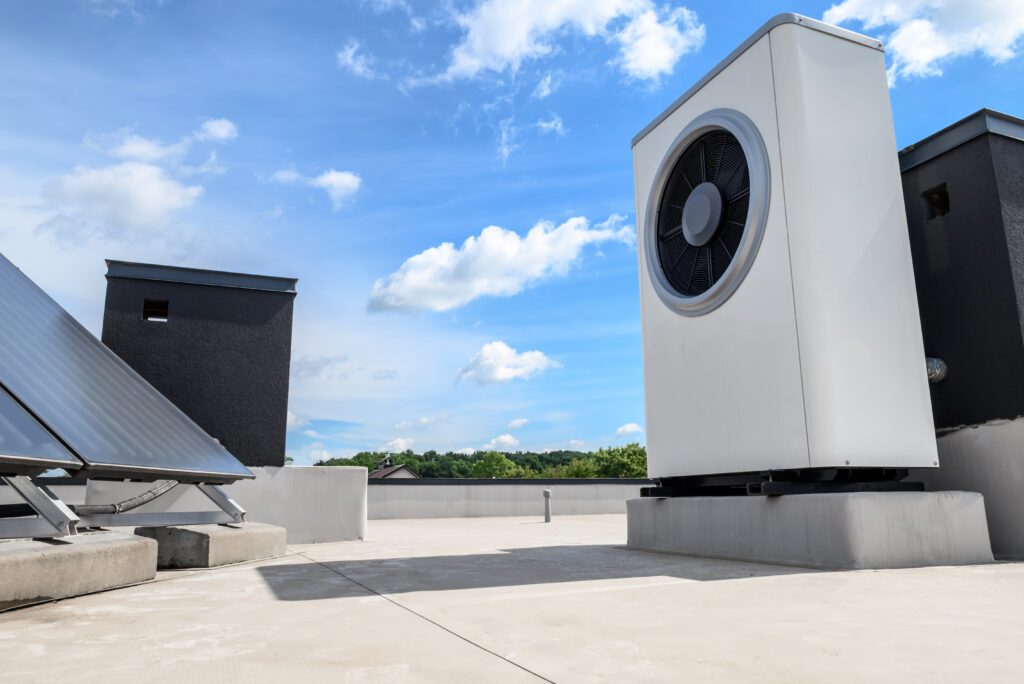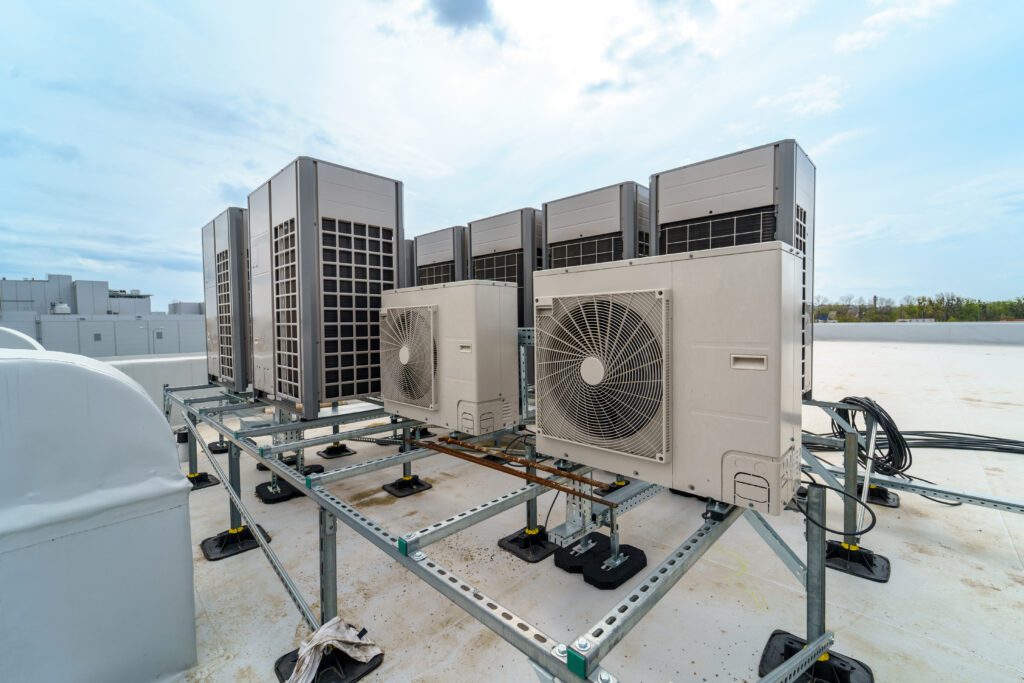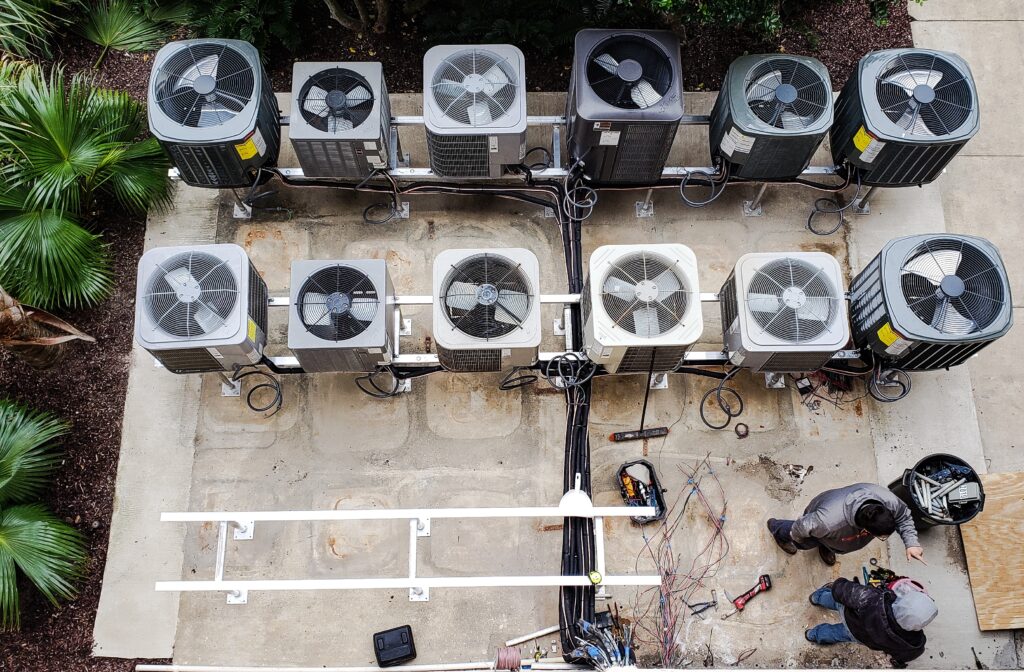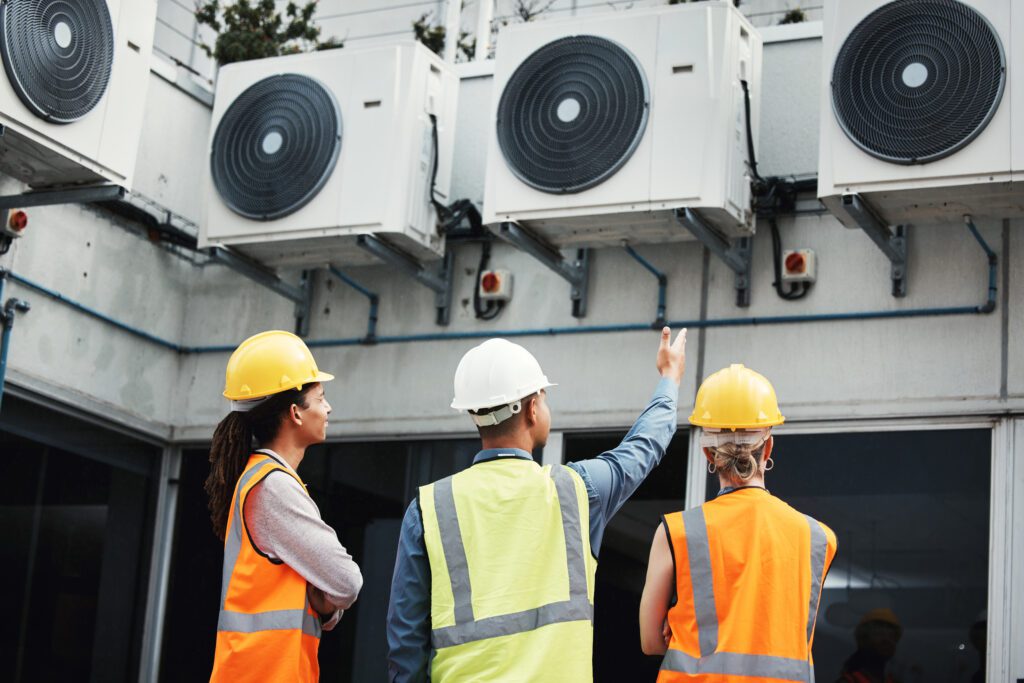Commercial HVAC systems play a crucial role in maintaining a comfortable and productive environment for businesses. However, they can also be a major expense for businesses, particularly small and medium-sized enterprises. Finding affordable solutions for commercial HVAC systems is essential to ensure efficient operation while keeping costs in check. In this article, we’ll explore the top 5 affordable solutions for commercial HVAC systems that can help business owners optimize their energy consumption and save money in the long run.
Understanding Commercial HVAC Systems

Before delving into the affordable solutions, it’s important to have a basic understanding of commercial HVAC systems. These systems are designed to provide heating, ventilation, and air conditioning to large commercial spaces, such as office buildings, retail stores, and warehouses. They are typically more complex and larger in scale than residential HVAC systems, catering to the specific requirements of commercial spaces.
Commercial HVAC systems consist of several key components that work together to regulate temperature, control airflow, and maintain indoor air quality. These components include air handlers, compressors, condensers, evaporators, thermostats, ductwork, and filtration systems. Each component plays a vital role in ensuring the efficient operation of the HVAC system and the overall comfort of the building occupants.
The Importance of Efficient HVAC Systems
Efficiency is crucial when it comes to commercial HVAC systems. An efficient system not only helps in reducing energy consumption and costs but also ensures optimal performance and extends the lifespan of the equipment. In contrast, an inefficient HVAC system can lead to higher energy bills, frequent breakdowns, and poor indoor air quality, resulting in discomfort and productivity losses for employees.
Investing in affordable solutions that enhance the efficiency of commercial HVAC systems is an excellent strategy for businesses looking to save money and maintain a comfortable working environment.
Key Components of Commercial HVAC Systems
Understanding the key components of commercial HVAC systems is essential for evaluating the affordable solutions available. By familiarizing themselves with these components, business owners can make informed decisions regarding upgrades or replacements, ensuring that they invest wisely in their HVAC systems.
Air Handlers: Air handlers are responsible for circulating and distributing conditioned air throughout the building. They consist of a blower, heating or cooling elements, and filters. Upgrading to energy-efficient air handlers can significantly improve the system’s performance and reduce energy consumption.
Compressors: Compressors play a crucial role in the cooling process. They circulate refrigerant and compress it to increase its pressure and temperature. Upgrading to high-efficiency compressors can result in substantial energy savings.
Condensers: Condensers facilitate the transfer of heat from indoor to outdoor air. Upgrading to energy-efficient condensers can improve the system’s cooling efficiency and reduce energy consumption.
Evaporators: Evaporators aid in the cooling process by absorbing heat from indoor air, essentially cooling it down. Upgrading to energy-efficient evaporators can enhance cooling efficiency and reduce energy costs.
Thermostats: Programmable thermostats allow for precise temperature control and can be programmed to adjust settings based on occupancy patterns. Upgrading to programmable thermostats can result in significant energy savings.
Ductwork: Efficient ductwork ensures proper airflow and minimizes energy losses. Insulating and sealing ducts can improve efficiency and reduce energy waste.
Filtration Systems: High-efficiency filters remove dust, allergens, and other airborne contaminants, ensuring good indoor air quality. Regularly replacing filters and upgrading to efficient filtration systems can improve both occupant comfort and system efficiency.
By understanding the importance of efficient HVAC systems and the key components involved, businesses can make informed decisions to improve their commercial spaces’ comfort and energy efficiency. Investing in affordable solutions and regular maintenance can lead to significant cost savings and a more productive work environment. So, take the time to evaluate your commercial HVAC system and explore the possibilities for improvement.
Evaluating Your HVAC System’s Performance

Before considering any affordable solutions, it’s important to evaluate the performance of your commercial HVAC system. By identifying any existing issues or inefficiencies, you can better understand which solutions will be most beneficial in optimizing its performance. Here are some common signs to look out for:
Common Signs of HVAC Problems
1. Inconsistent temperature control: If some areas of your building are consistently too hot or too cold, it may indicate airflow or thermostat issues.
2. Frequent breakdowns: If your HVAC system requires frequent repairs or experiences unexpected breakdowns, it may be a sign that the components are aging or the system is inadequately maintained.
3. High energy bills: An increase in energy bills without a corresponding increase in usage can indicate that your HVAC system is operating inefficiently.
4. Poor indoor air quality: Lingering odors, dust accumulation, or excessive humidity can indicate problems with your HVAC system’s filtration or ventilation.
The Cost of Inefficient HVAC Systems
Inefficient HVAC systems can cost businesses thousands of dollars in unnecessary energy expenses. As energy prices continue to rise, it’s more important than ever to address inefficiencies and minimize wasteful energy consumption. The initial cost of implementing affordable solutions is far outweighed by the potential long-term energy savings and improved system performance.
However, the impact of inefficient HVAC systems extends beyond financial costs. Poorly performing systems can also have detrimental effects on the comfort and well-being of building occupants. Inconsistent temperature control can lead to discomfort and reduced productivity among employees. Additionally, poor indoor air quality can contribute to health issues such as allergies, respiratory problems, and fatigue.
Moreover, inefficient HVAC systems can negatively impact the environment. The excessive energy consumption associated with these systems contributes to greenhouse gas emissions, exacerbating climate change. By addressing the inefficiencies in your HVAC system, you not only save money and improve comfort but also play a part in reducing your carbon footprint and promoting sustainability.
The Top 5 Affordable HVAC Solutions

Energy-Efficient HVAC Systems
Investing in energy-efficient HVAC systems is a highly effective solution for reducing energy consumption and costs. These systems are designed to operate optimally even in demanding commercial environments. Energy-efficient HVAC systems incorporate advanced technologies, such as variable speed motors, which adjust airflow to meet demand, resulting in significant energy savings. Additionally, these systems often meet or exceed energy efficiency standards set by organizations like ENERGY STAR®, ensuring performance and reliability.
Programmable Thermostats
Programmable thermostats offer precise control over temperature settings, allowing businesses to optimize energy usage. By programming temperature setbacks during non-peak hours or when the building is unoccupied, businesses can save energy without sacrificing comfort. For example, during the winter, programmable thermostats can automatically reduce heating when employees leave for the day, reducing energy consumption and costs.
Regular HVAC Maintenance
Maintaining your commercial HVAC system is essential for efficient operation. Regular maintenance tasks, such as cleaning or replacing filters, lubricating moving parts, and inspecting electrical components, can prevent breakdowns, improve system performance, and prolong the lifespan of your HVAC equipment. While maintenance may incur some costs, it is significantly cheaper than having to repair or replace a neglected system.
Moreover, regular maintenance ensures that your HVAC system operates at its peak efficiency, saving you money on energy bills. It also helps to maintain good indoor air quality by removing dust, allergens, and pollutants from the air. This is especially important for businesses that prioritize the health and well-being of their employees and customers.
HVAC System Upgrades
Upgrading specific components of your HVAC system can enhance its efficiency and performance without the need for a complete overhaul. As mentioned earlier, upgrading air handlers, compressors, condensers, evaporators, and thermostats can provide substantial energy savings. It’s important to consult with HVAC professionals to determine which upgrades are most appropriate for your specific system.
Furthermore, HVAC system upgrades can also improve the overall comfort of your commercial space. For instance, upgrading to a more advanced thermostat with smart features can provide better temperature control and customization options. This allows you to create a more comfortable environment for your employees and customers, leading to increased productivity and satisfaction.
Zoning Systems
Zoning systems divide commercial spaces into different zones, allowing for customized temperature control. By regulating airflow to each zone based on specific occupancy requirements, businesses can optimize energy usage and enhance comfort. For example, areas with high occupancy can be cooled or heated more intensively than unoccupied areas, resulting in significant energy savings.
In addition to energy savings, zoning systems offer the flexibility to cater to different temperature preferences in various areas of your commercial space. This can be particularly beneficial for businesses with multiple departments or areas with different thermal requirements. By providing individualized comfort, zoning systems can improve employee satisfaction and overall workplace productivity.
Choosing the Right HVAC Solution for Your Business

Assessing Your Business’s HVAC Needs
Before making any decisions, it’s crucial to assess your business’s HVAC needs. Consider factors such as the size of your building, the number of occupants, and the specific requirements of your business operations. Understanding these factors will help you make informed decisions when selecting affordable solutions for your commercial HVAC system.
For example, if you have a large office space with multiple floors and a high number of employees, you may need a centralized HVAC system that can efficiently cool and heat the entire building. On the other hand, if you have a smaller retail store, a ductless mini-split system might be more suitable, as it allows for individual temperature control in different areas of the store.
Budgeting for an HVAC Solution
Affordability is a key consideration when implementing HVAC solutions. Set a budget based on your business’s financial capabilities and explore options that fit within that budget. It’s important to strike a balance between upfront costs and long-term savings when considering the return on investment.
When budgeting for an HVAC solution, it’s also essential to consider potential future expenses. For instance, if you choose an older, less energy-efficient system to save money upfront, you may end up spending more on energy bills in the long run. Investing in a more energy-efficient system might have a higher upfront cost but can lead to significant savings on energy consumption over time.
Working with HVAC Professionals
Collaborating with experienced HVAC professionals is crucial when selecting and implementing affordable solutions for your commercial HVAC system. HVAC professionals can provide valuable insight into your specific needs, perform thorough system assessments, and assist in selecting the most appropriate solutions that align with your budget and goals.
Moreover, HVAC professionals can also help you navigate through the complex world of rebates and incentives offered by utility companies and government agencies. These incentives can help offset the initial costs of installing energy-efficient HVAC systems, making them even more affordable for businesses.
By working closely with HVAC professionals, you can ensure that your chosen HVAC solution is properly installed and maintained. Regular maintenance is essential for the optimal performance and longevity of your system. HVAC professionals can provide guidance on maintenance schedules and offer preventive measures to avoid costly breakdowns and repairs.
In conclusion, optimizing the performance of commercial HVAC systems while keeping costs in check is crucial for businesses. The top 5 affordable solutions, including energy-efficient HVAC systems, programmable thermostats, regular maintenance, system upgrades, and zoning systems, offer practical ways to achieve this goal. By making smart investments in these solutions, businesses can reduce energy consumption, enhance comfort, and save money in the long run. Assess your business’s HVAC needs, set a budget, and consult with HVAC professionals to find the most suitable and cost-effective solutions for your commercial HVAC system.


